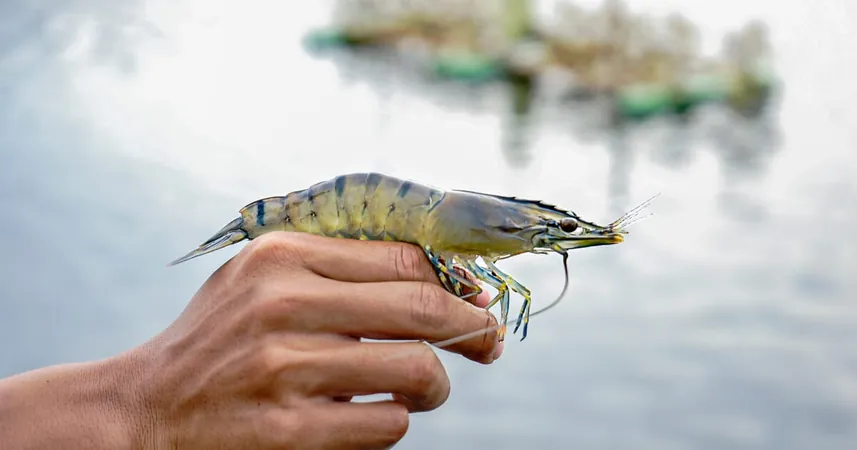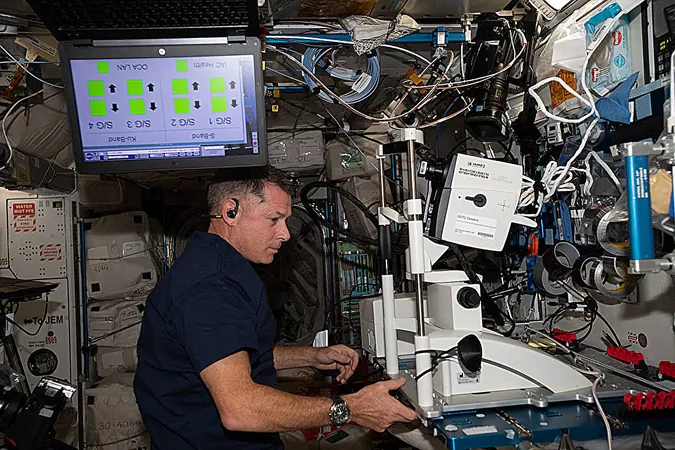
Unlocking the Future of Shrimp Farming: Brazilian Broodstock Set to Revolutionize Resilience
2025-06-06
Author: Mei
Brazil’s Black Tiger Shrimp: A Game Changer for Aquaculture
In an exciting development for the shrimp farming industry, researchers from Genics, in partnership with the State University of Maranhão, CSIRO, and genotyping experts Weatherbys Scientific, have unveiled a promising study on the genetic diversity and pathogen resilience of black tiger shrimp from Ceará, Brazil. Spanning over ten generations, this research assesses these shrimp as a foundation for a new wave of sustainable breeding programs.
Pathogen-Free and Genetically Diverse: A New Era Begins
The comprehensive pathogen screening, conducted on ninety-six shrimp through advanced molecular diagnostics and histopathology, revealed no significant pathogens. This pivotal discovery positions the Brazilian broodstock as a prime candidate for a specific pathogen-free (SPF) breeding initiative.
Moreover, genetic analysis using SNP markers recorded an impressively low inbreeding coefficient of 0.03. This is on par with renowned international shrimp populations in Vietnam and Australia, indicating that Brazil’s black tiger shrimp possess the genetic fortitude necessary for thriving in both local and global aquaculture markets.
Expert Insights: A Vision for Sustainable Shrimp Farming
Dr. Melony Sellars, CEO of Genics, emphasized the significance of these findings. She stated, "This is a pivotal moment for the Brazilian shrimp farming sector. By demonstrating that our local black tiger shrimp are pathogen-free and genetically diverse, we equip the industry with the essential tools to enhance resilience and minimize disease risks while promoting sustainable production systems."
Reducing Imports and Fortifying Biosecurity
The implications of this study are vast; it not only establishes a template for Brazil’s shrimp industry but also reinforces the potential for local breeding programs to lessen dependence on imported stocks. This is a crucial step in curbing the spread of infectious diseases that threaten shrimp populations globally.
Cutting-Edge Tools for Aquaculture Management
The research highlights the critical need for thorough pathogen screening and genetic analysis as fundamental elements of effective aquaculture management. Genics' ShrimpID P. monodon service utilizes high-density SNP markers, providing shrimp farmers with invaluable insights into genetic diversity and lineage tracing. This initiative significantly bolsters Genics' commitment to advancing biosecurity and ensuring food security on a global scale.
A Collaboration for a Sustainable Future
Weatherbys Scientific expressed their enthusiasm, stating they are "delighted to play a part in building the future of aquaculture - one genotype at a time." With this collaborative effort, the shrimp farming landscape is poised for innovative strides toward sustainability and disease resilience.




 Brasil (PT)
Brasil (PT)
 Canada (EN)
Canada (EN)
 Chile (ES)
Chile (ES)
 Česko (CS)
Česko (CS)
 대한민국 (KO)
대한민국 (KO)
 España (ES)
España (ES)
 France (FR)
France (FR)
 Hong Kong (EN)
Hong Kong (EN)
 Italia (IT)
Italia (IT)
 日本 (JA)
日本 (JA)
 Magyarország (HU)
Magyarország (HU)
 Norge (NO)
Norge (NO)
 Polska (PL)
Polska (PL)
 Schweiz (DE)
Schweiz (DE)
 Singapore (EN)
Singapore (EN)
 Sverige (SV)
Sverige (SV)
 Suomi (FI)
Suomi (FI)
 Türkiye (TR)
Türkiye (TR)
 الإمارات العربية المتحدة (AR)
الإمارات العربية المتحدة (AR)